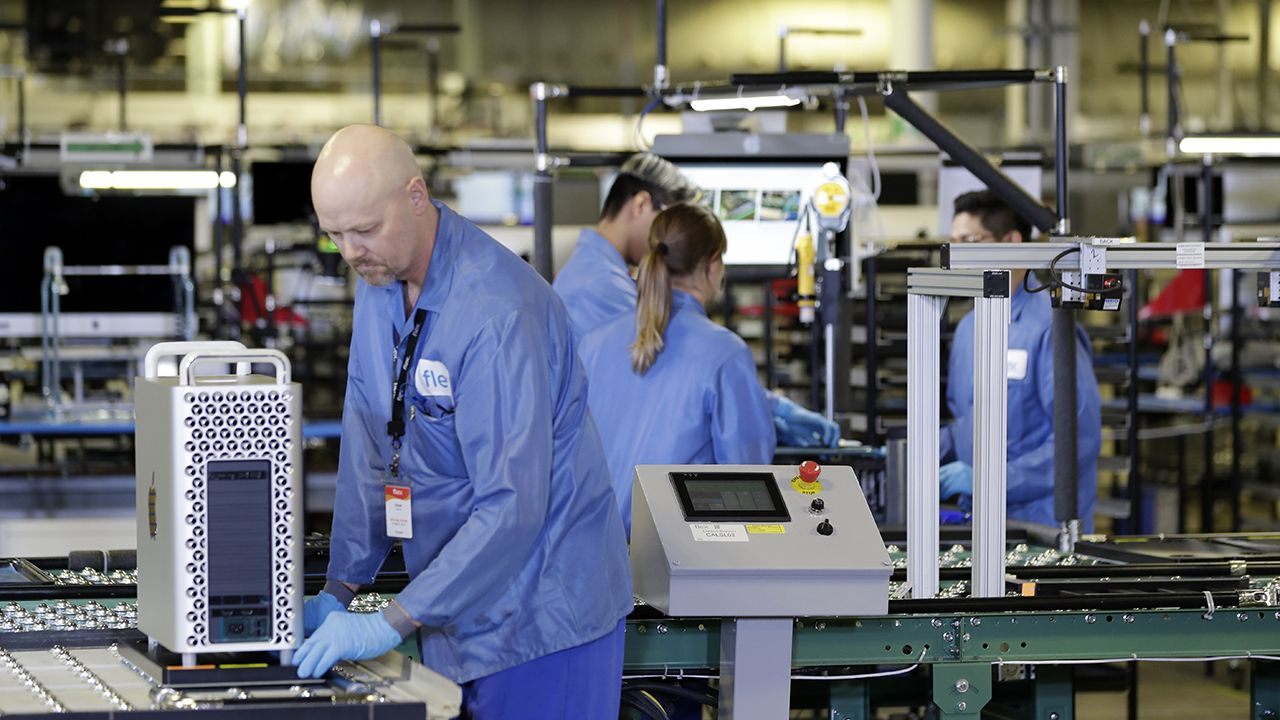
President Trump speaks in Davos on the prosperous economy and U.S.-China trade deal progress.
In the last three months, U.S. business economists have become a little more optimistic about economic growth.
Continue Reading Below
They also sales at their companies remaining solid.
That is the latest from the latest survey by the National Association for Business Economics released Monday.
It found that 67 percent of the business economists who responded to the survey are expecting moderate economic growth of 1.1 percent to 2 percent over the coming year.
That was essentially unchanged from the October survey. But the proportion of business economists who expect significantly stronger growth of 2.1 percent to 3 percent jumped to 30 percent from 20 percent in the previous survey in October.
GET FOX BUSINESS ON THE GO BY CLICKING HERE
The government will report this week on economic growth, as measured by the gross domestic product, for all of 2019.
Many economists have estimated that growth last year slowed to around 2.3 percent, from 2.9 percent in 2018, which had been the strongest performance since 2015.
The general expectation is that 2020 growth will slow further to perhaps 1.7 percent. That would be a disappointment for President Trump, who insisted as a candidate in 2016 that his policies would double the lackluster economic growth of the past decade to annual rates of 4 percent or better.
FOX NEWS POLL: RECORD ECONOMY RATINGS, AS VOTERS CREDIT TRUMP
Still, speaking at an economic forum last week in Switzerland, Trump proclaimed that the U.S. economy is benefiting from “’extraordinary prosperity,” with the lowest unemployment in a half century and a record-high stock market.
The NABE business survey, compiled from 97 responses of NABE members from late December through early January, found that for the first time in a decade there were as many respondents reporting declines in employment at their companies as were reporting increases.
The survey found a significant increase in the percentage of companies that reported shortages of unskilled labor. And nearly half reported shortages of skilled labor.
To help attract workers, roughly half of those responding to the survey said their companies had raised wages in the past three months. An even bigger 62 percent expect their businesses to raise wages in the coming quarter.
THE TRUMP ECONOMY, THREE YEARS IN: WHAT THE NUMBERS SAY
Among the factors boosting optimism, the survey found more businesses reporting expectations of rising revenue, stronger profit margins and increased sales prices than in the October survey.
Plans to boost capital spending, which have been depressed in large part because of the uncertainty caused by Trump’s trade wars, edged up slightly but still remain at their second-lowest level since 2016.
But 61 percent of businesses said that the higher tariffs imposed by the trade conflicts with China and other countries hadn’t affected their businesses in a significant way. Among those businesses that did feel an impact, 20 percent said the adverse effects had been felt in falling sales. Nineteen percent said the trade conflicts had contributed to higher costs.
CLICK HERE TO READ MORE ON FOX BUSINESS
The NABE survey was taken after the announcement of a ceasefire in the trade war between the United States and China, capped by the signing of a preliminary agreement between the two sides. That accord is to be followed by negotiations on an expanded deal.
The Associated Press contributed to this article.


